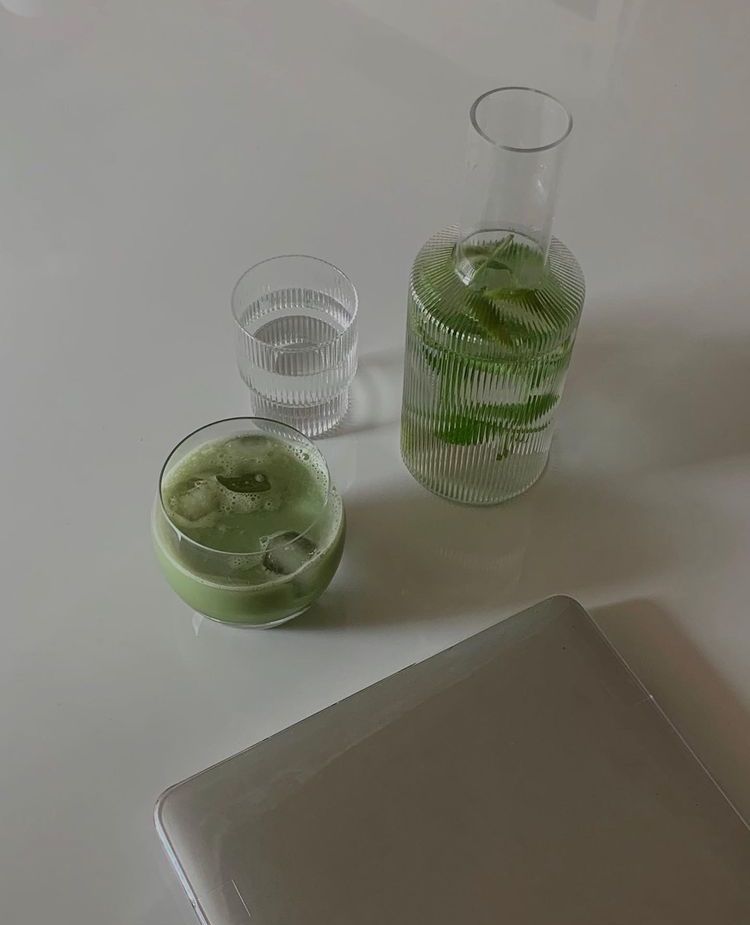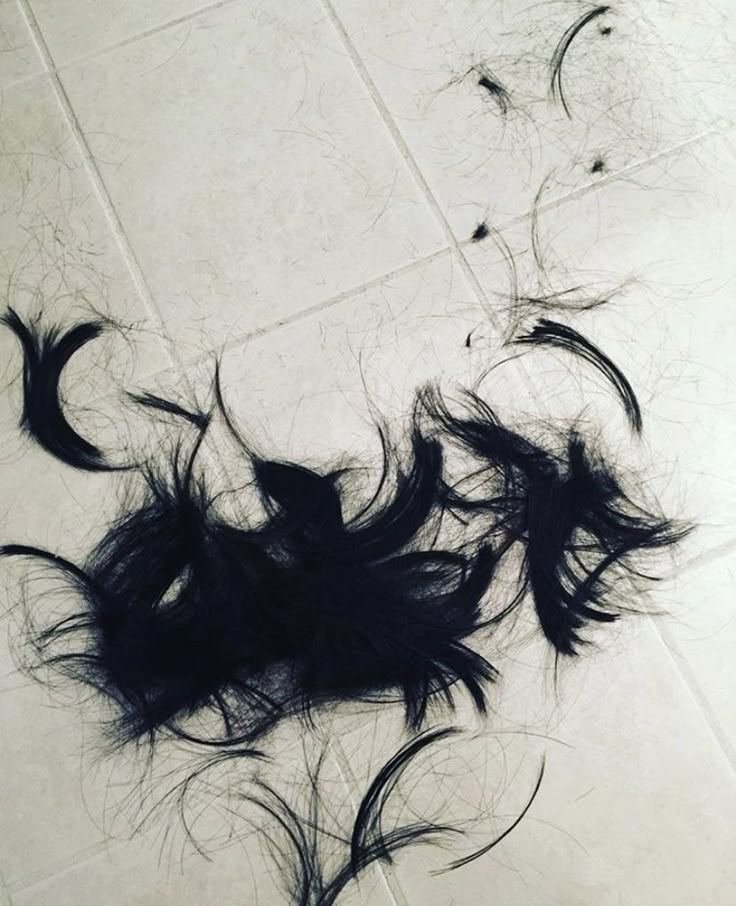Hair health starts from within! How you nourish your body—and the microorganisms that share it—will show up later in your strands.
The health of our digestive system, often referred to as gut health, plays a crucial role in the overall well-being of our body, including the health of our scalp and hair. A well-functioning gut is essential for optimal nutrient absorption, which is vital for nourishing hair follicles and maintaining a healthy scalp.
Not only does the gut microbiome have enzymes that break down food and assimilate micronutrients needed for hair growth, but your gut flora can also regulate hormones that control a hair’s transition through the different phases of its life cycle. By eating a healthy diet and creating conditions for beneficial bacteria to thrive in your gut, you can set your hair up for success from within.
The gut microbiome, a complex ecosystem of bacteria in the digestive tract, significantly influences our immune system and inflammation levels. An imbalance in this microbiome can lead to systemic inflammation, which can negatively impact scalp health, potentially leading to issues like dandruff, scalp psoriasis, or hair loss.
Furthermore, a healthy gut also aids in the detoxification process, helping to eliminate toxins that could otherwise harm hair and scalp health. The gut-skin connection, known as the ‘gut-skin axis,’ suggests that a healthy gut flora can promote healthier skin and hair, as it helps in reducing oxidative stress and supports the production of vital nutrients such as biotin and vitamin B12. These nutrients are essential for hair strength, growth, and preventing premature graying.
Therefore, maintaining gut health through a balanced diet, probiotics, and adequate hydration can be a key factor in achieving a healthy scalp and lustrous hair. It is important to recognize that gut health is not just about digestion; it’s intrinsically linked to numerous aspects of our overall health, including the vitality and condition of our hair and scalp.
I’ve had my own journey with figuring out the link between gut health and hair, so I know how personal and urgent it can be. JOIN ME as we dive into all things hair nutrition and how to optimize gut health for hair health.
My Story
I started losing my hair after my second child, and then experienced further loss after a much needed breast lift (anesthesia is a doozy for me and my hair every time). All of that left me very stressed and depleted. I noticed hair just shedding, popping right off the follicles with the bulbs attached.
I would count hairs and dread washing or brushing my hair as the hairs would just fill my brush every time. And yes I have a lot to start with, but I remember the moment I realized I could see through my hair.
So what did I do? I took every supplement under the sun. If it said “hair, skin and nails” on it, I was taking it. I never changed my eating habits or sleep or stress levels. I only know one speed, and it’s: power through.
I had always been that person who ate anything and everything, but the reality was I was no longer a 20-year-old living off air and fast food. I was a 36-year-old with two kids, stress, fatigue, bad water intake, adrenal fatigue, and terrible eating habits.
I couldn’t see how poor nutrition had any role. But after a while, I experienced bloating and cramping that became so painful, and I would be distended after a meal, that I ended up seeing a gastroenterologist.
We did a colonoscopy and nothing stood out to her besides that having a tortuous colon meant I needed more fiber and to work with a nutritionist, Lauren, to change my diet. She said to get off the pre- and probiotics because they end up doing more harm than good, and begin to learn how to get it all from a BALANCED DIET that works for my body and gut.
Because let me tell you: I don’t cook, I don’t understand food groups, I assume if I shovel vegetables in my mouth or drink a smoothie I’m good. There’s so much to learn and who has the time?
You want to know what I noticed three months in (which is about the normal cycle of new hair growth)? So many new baby hairs popping out of my follicles, and I remember calling Lauren saying, OH MY GOD HOW IS THIS WORKING.
So here’s some of the science behind gut health and hair health.
What Is the Gut Microbiome?
In words we can understand, the gut microbiome is a hangout of microorganisms in our body that like to live in the cool spot in the neighborhood: our gut.
It’s easy to think of the gut microbiome as some invisible, intangible thing that supposedly helps optimize our digestion and overall health. But those 100 trillion microorganisms that reside in our gut add up to weigh around 5 pounds. That’s a very real, significant community living inside of us, and its impact on our health and hair is profound.
How Does Gut Health Impact Hair Health?
The microbiome is crucial for our overall health and even has the ability to send signals directly to our brain. This phenomenon is known as the gut-brain axis. You may have heard of the gut-skin axis, too. Well there’s also a gut-hair axis! The gut microbiome is responsible for beneficial bacteria that can limit the factors leading to hair loss and encourage the hair growth cycle.
Essentially, a microbiome that’s out of balance (with an overgrowth of bad bacteria or a lack of good bacteria) can cause inflammation throughout the body. And when your scalp is inflamed, this can kill off hair follicles.
The microbiome also has a direct impact on our hormones, like the ones needed for our anagen, catagen, and telogen hair growth phases.
Research suggests that maintaining a healthy gut can be a step to healing many common health problems, including hair thinning and hair loss, thanks to the way our bacteria helps us process nutrients like biotin. The healthier our microbiome, the more hair regrowth may occur.
Nutrients Needed for Healthy Hair
Protein is the building block of hair. In fact, up to 85 percent of your hair is made up of a protein called keratin. But in addition to getting high quality protein, it’s also important to consume essential micronutrients for hair health, since proper absorption of these is necessary for cell turnover and hormonal harmony.
- Vitamin C contributes to collagen synthesis for amino acids that build keratin, an important protein for hair structure.
It’s important to consume a nutrient-dense diet if you want to have longer, stronger hair. Poor nutrition can result in malabsorption and inflammation, which prevents your hair cells from being able to fully repair, causing cell damage and hair loss.
Remember, it’s all about balance! While nutrient deficiencies can lead to hair loss, getting too many of certain nutrients can do the same. That’s one reason it’s good to strive for getting nutrients from whole foods when possible, instead of over-supplementing. Some foods that are great for hair health include salmon, olive oil, almonds, cashews, Brazil nuts, flax seeds, sweet potatoes, spinach, and eggs.
Prebiotics and probiotics are also important for gut health, so it’s always good to make sure you’re getting in your fiber-rich fruits and veggies and cultured foods like Greek yogurt and kefir.
Steps To a Healthy Gut
I spoke to nutritionist Lauren Cornell recently, and here’s how she explains it. A simple, easy step-by-step guide to gut health:
- Don’t over-supplement (and for that matter, avoid taking antibiotics unless necessary, as they have a habit of throwing your gut bacteria way off).
- Get your blood panel done. Check for thyroid, vitamin D, iron (full iron panel especially for women), and vitamin B. Deficiencies all contribute to hair loss and follicle unhealth.
- Find YOUR balanced diet. Everyone is different, and one fad might work for another person that won’t work for you. The avocados that are healthy for others cause ME inflammation and trigger my IBS. I tend to be anemic, so I do eat a minimal but important amount of meat in my diet.
- Stay away from the TESTS. You’ve seen the commercials and probably gotten ads for food sensitivity testing, etc. Instead, Lauren says to seek out a qualified nutritionist to guide you to your best balanced and least inflammatory diet.
- And the most obviously important and still annoying factors: Get sleep, hydrate, minimize stress (lol) and eat a balanced diet.
One piece of the hair puzzle. Now let’s keep going!
Sources:



